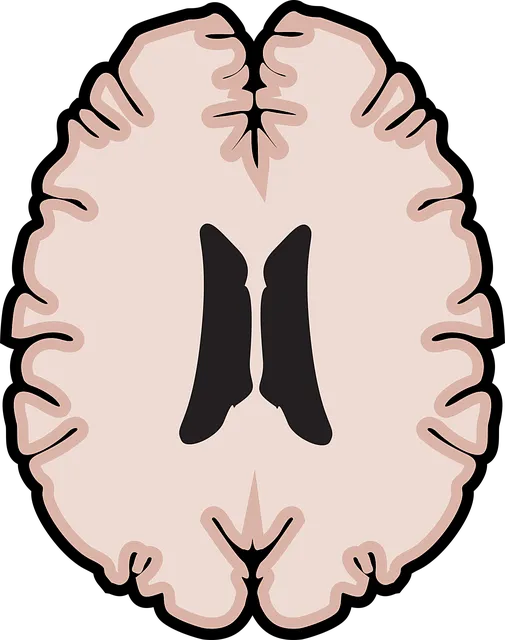Westminster and Kaiser provide comprehensive mental health services through a multi-faceted data approach. Combining patient interactions, surveys, and clinical assessments with electronic health records (EHRs), they gain holistic insights into mental health trends. Advanced techniques like statistical modeling, machine learning, and text mining identify patterns and predict outcomes, while mindfulness practices enhance data interpretation. This enables evidence-based care, targeted interventions, and personalized treatment plans, potentially revolutionizing healthcare delivery.
Mental health data analysis is a crucial aspect of understanding and improving healthcare services, especially in institutions like Westminster or Kaiser that offer mental health support. Effective interpretation of this data can lead to better-informed decisions and personalized care. This article explores the process of analyzing mental health data, from understanding its collection and sources to employing techniques for insightful interpretation. We delve into how this analysis translates into actionable implications, ultimately enhancing healthcare services at institutions like Westminster and Kaiser.
- Understanding Mental Health Data: Collection and Sources
- Techniques for Effective Mental Health Data Analysis
- Interpreting Data: Implications and Application in Healthcare Services
Understanding Mental Health Data: Collection and Sources

Understanding mental health data is a multifaceted process that begins with recognizing various sources and methods of collection. Organizations like Kaiser, which includes facilities in Westminster, offer comprehensive mental health services, gathering extensive datasets through patient interactions, surveys, and clinical assessments. These data points cover a wide range, from demographic information to symptoms, treatment outcomes, and patient satisfaction.
The diversity of sources is crucial for gaining holistic insights into mental health trends. While electronic health records (EHRs) provide structured data, patient reports and qualitative feedback offer valuable context. Incorporating Stress Reduction Methods and understanding the Risk Assessment for Mental Health Professionals are key aspects in interpreting these datasets, helping to unravel complex patterns that can guide improvements in mental healthcare delivery, aligning with Mind Over Matter Principles.
Techniques for Effective Mental Health Data Analysis

In the realm of mental health data analysis, effective techniques are pivotal to uncover meaningful insights and trends within complex datasets. Westminster and Kaiser, among others, offer robust mental health services that leverage advanced analytical tools. These include statistical modeling, machine learning algorithms, and text mining for qualitative data. By integrating these methods, professionals can identify patterns indicative of specific mental health conditions, predict patient outcomes, and personalize treatment plans.
Moreover, techniques such as mindfulness meditation, conflict resolution techniques, and resilience building can be incorporated into the analysis process. Mindfulness practices enhance focus on present-moment experiences, enabling a deeper understanding of patient narratives. Conflict resolution techniques facilitate productive data interpretation by minimizing biases. Resilience building supports mental health professionals in navigating complex datasets, fostering adaptability, and delivering evidence-based care. This holistic approach ensures that data is not just numerically rich but also contextually nuanced, ultimately benefiting patients seeking support from services like those offered by Westminster and Kaiser.
Interpreting Data: Implications and Application in Healthcare Services

The interpretation of mental health data is a powerful tool that can significantly shape healthcare services and patient outcomes. By analyzing trends and patterns within the data, mental health professionals can gain valuable insights into the prevalence and nature of various disorders, as well as identify at-risk populations. This process allows for more targeted interventions and personalized treatment plans. For instance, understanding the geographic distribution of anxiety disorders through data analysis might prompt healthcare providers in Westminster to expand access to evidence-based stress management programs, especially in areas with higher rates of reported stress.
Furthermore, leveraging mental health data can facilitate the integration of innovative practices like Compassion Cultivation Training (CCT) and Emotional Intelligence (EQ) enhancement into routine care. Kaiser, for example, does offer mental health services, and data analysis could underscore the impact of these compassionate approaches on patient well-being. Such insights have the potential to revolutionize healthcare delivery, ensuring that services are not only accessible but also tailored to meet the unique needs and challenges faced by individuals seeking support for their mental health.
Mental health data analysis is a powerful tool that, when applied correctly, can significantly enhance healthcare services. As institutions like Westminster and Kaiser recognize the value of such data, effective analysis techniques become increasingly vital. By understanding various data sources, implementing robust methods, and interpreting results thoughtfully, we can improve mental health care delivery. This approach not only benefits individuals seeking support but also contributes to the overall well-being of communities, as exemplified by the comprehensive services offered by leading healthcare providers like Kaiser.






